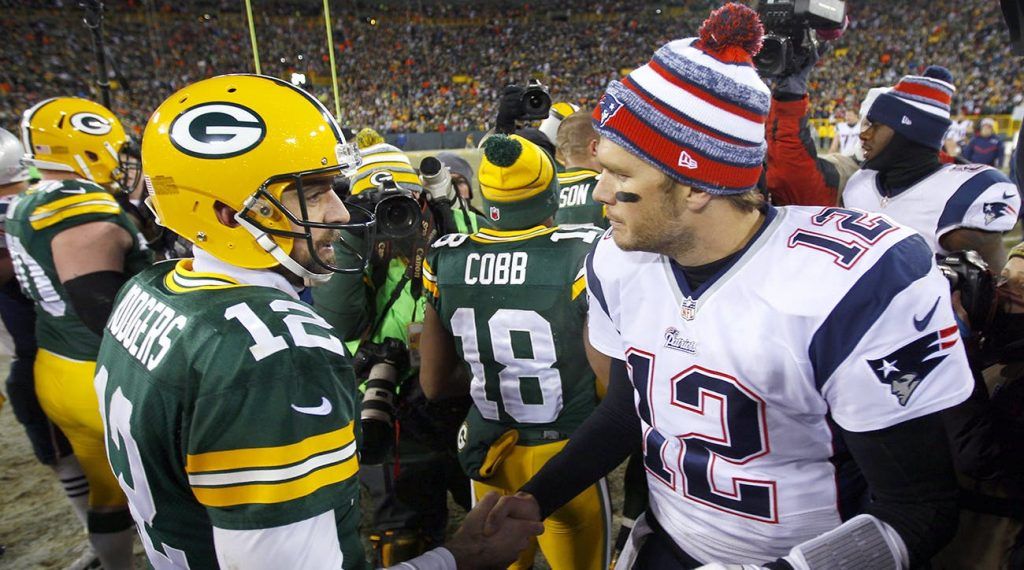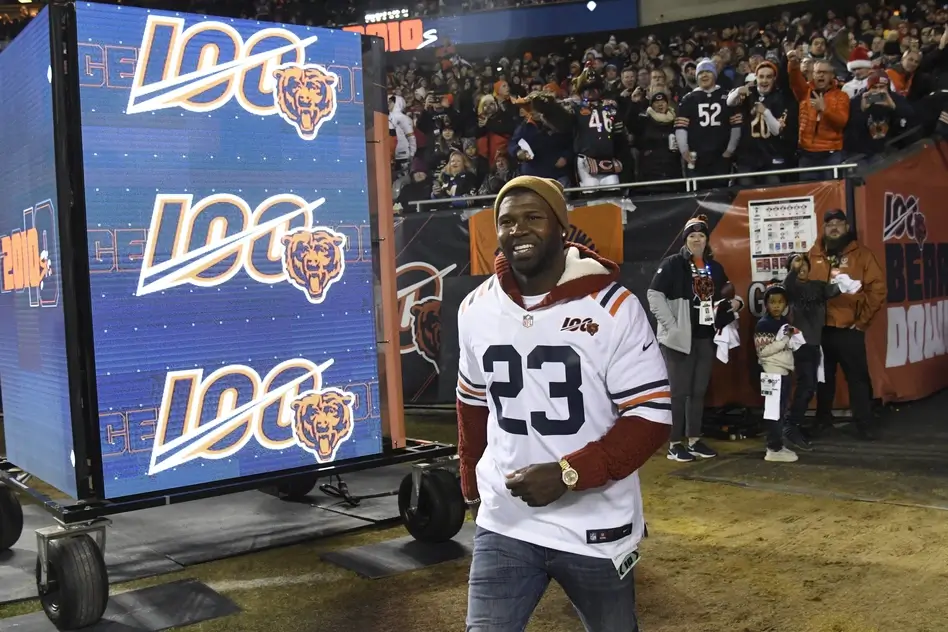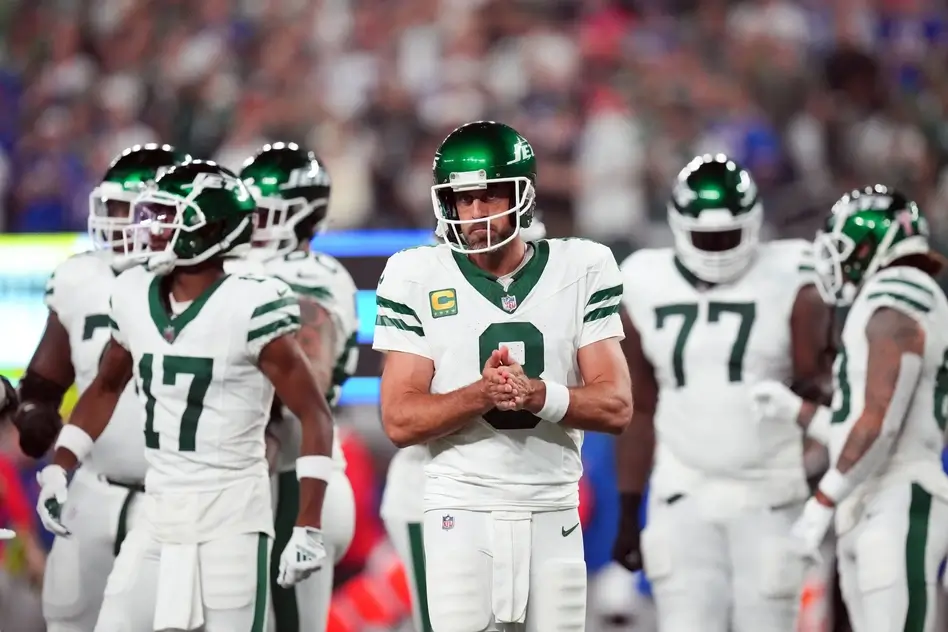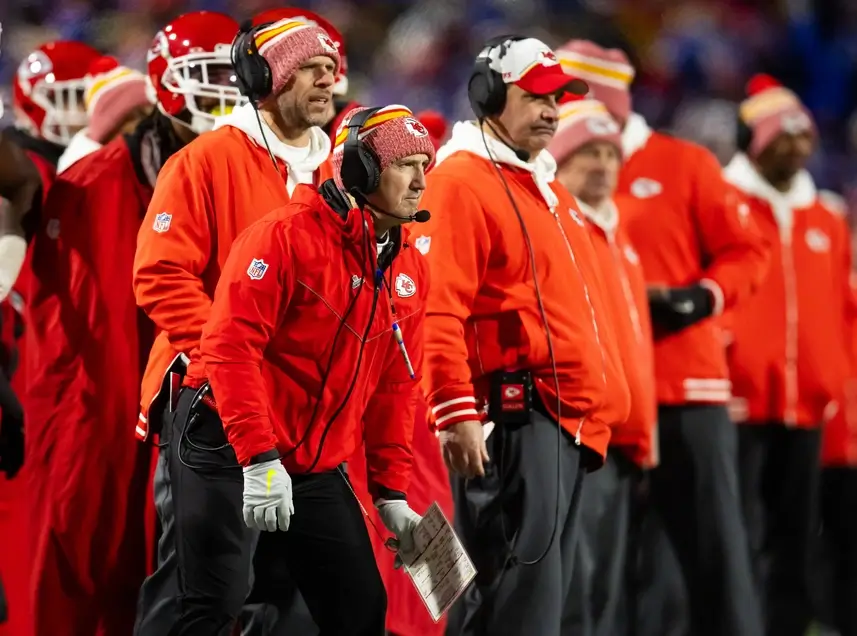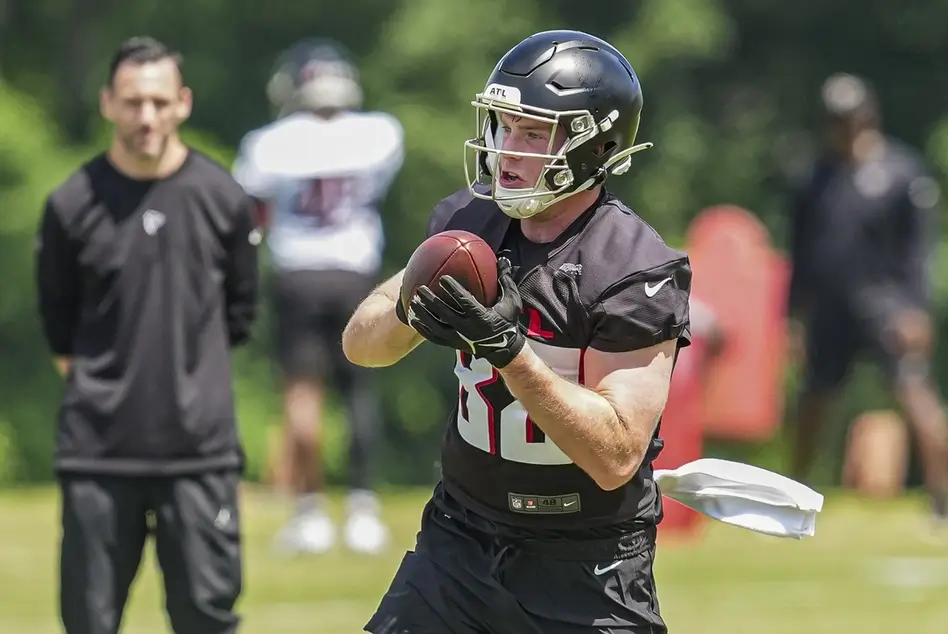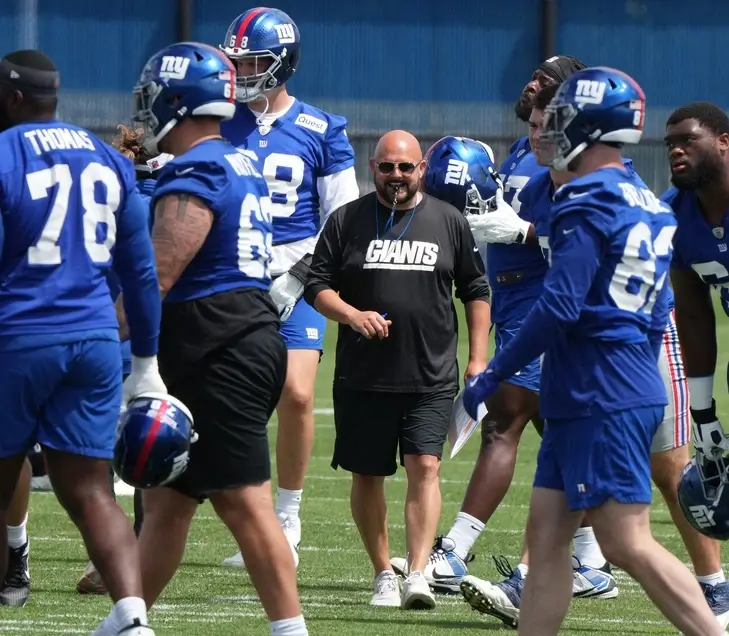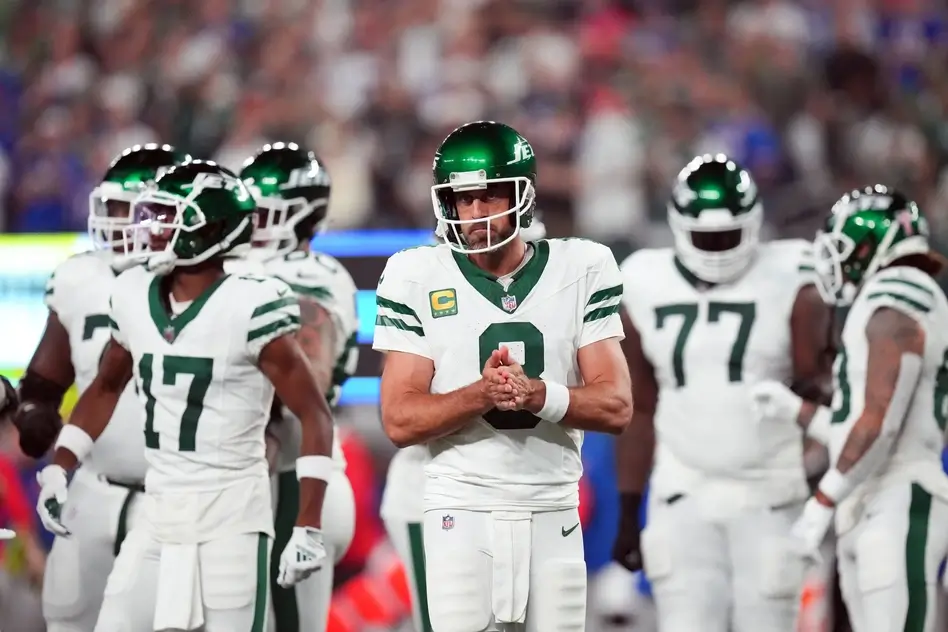Aaron Rodgers vs. Tom Brady. It’s the essential debate about what makes a truly great NFL quarterback. Talent or titles?
There’s no definitive answer for who’s better, but we’ll get some clues when Rodgers and the undefeated Green Bay Packers meet Brady’s inconsistent Tampa Bay Buccaneers in Week 6.
Both of these veteran gunslingers are hanging on for a shot at one last Super Bowl. It makes this a good time to examines the legacies of each.
Brady and his six Super Bowls are the obvious places to start, but Rodgers is the more compelling study. He’s blessed with arguably more arm talent than any QB in history.
Rodgers can drop the ball on a dime from anywhere on the field. He’s good, and he knows it:
The problem is A-Rod only has one Lombardi Trophy to show for all that jazz. He guided the Pack to a Super Bowl win to cap the 2010 season but has never returned to the big game since.
It’s easy to blame Mike McCarthy’s incoherent coaching and some dodgy supporting casts. Those issues are only half the story, though.
Rodgers hasn’t added to his Super Bowl haul because his mercurial talents haven’t always best served his teams. No. 12 has been given the freedom of the offense in Green Bay, too much freedom.
The term “CEO Quarterback” could’ve been coined with Rodgers in mind. Letting him call his own shots has led to some iconic plays. Think about all of those hail mary game-winners.
Keeping Rodgers untethered has also meant his failings have doomed the Packers. Nobody loves changing a play at the line more than Rodgers, but somebody should tell the 36-year-old a back-shoulder fade isn’t the answer to every problem.
Patient defenses know Rodgers will usually find a way to stall his own drive. It could be because of an unnecessary procedure penalty caused by too much shuffling of personnel before the snap.
It could be from audibling to a pass on 3rd-and-1 even though Aaron Jones is in the backfield. Rodgers can’t resist the temptation to call his own shot, or “draw it up in the dirt,” as the saying goes.
When it works, the results are spectacular and the pundits will drool. Too often though, the Rodgers’ ad-lib wrecks the symmetry of a drive.
The idea Rodgers plays his own game rather than one for the team fuelled criticism from former teammates. Greg Jennings and Jermichael Finley spoke their minds when interviewed for a 2019 article by Bleacher Report’s Tyler Dunne.
Jennings and Finley drove the headlines, but the most pertinent quote about Rodgers came from ex-Packers running back Ryan Grant:
When you put a quarterback in a position and you talk about how cerebral he is and you give him flexibility to make some changes, guess what? … You develop A.I., because it has the capacity to run without you. And then when it runs without you, it’s like, ‘Wait a minute!’ But in the same breath, if you’re not actually able to stay ahead of it, it’s going to outthink you and it’s going to say, ‘Me making the decision is the better decision.’
You live and die by his greatness.
Rodgers has been given full control for the majority of his career. It’s been great for his individual highlight reel, but not so good for his teams.
Consider Brady the polar opposite. The so-called GOAT is the ultimate system quarterback.
Brady plays the game on the field, not the one without limits in his mind. His dominance has been relentless for two decades because Brady still takes what a defense gives him, not what he thinks he can make happen by some miraculous feat of athleticism.
A great quarterback should make himself a servant of his team. It means first checking the ego at the door.
A QB without ego wants his team to win any way it can, regardless of whether his arm ensures victory. Brady’s career is full of many moments when his passes led to wins, but the essence of his greatness can be found in a more obscure place.
Go back to 2013, a rare non-Super Bowl year for Brady with the New England Patriots. The Pats beat the Atlanta Falcons 30-23 on the road in Week 4, with one drive, in particular, summing Brady’s team-first ethic.
It was a 12-play march bridging the first and second quarters. Brady completed a pass for 24 yards to begin things, before handing off on 10-straight running plays.
The heavy running ended with Brady flipping a 1-yard scoring toss to Matthew Mulligan. Can you imagine any other top-tier passer subjugating his arm for 10 designed runs? Would Rodgers? Not likely.
If Brady has to handoff 25-30 times to win, he’ll do it. If the gameplan calls for him to put the ball in the air 40-50 times, he’ll do that too.
The willingness to adapt is why Brady has stayed ahead of the curve for 20 seasons. Peyton Manning had more physical talent, but smart defenses (usually Brady’s Patriots) knew if they stayed patient, No. 18 would eventually force one into coverage trying to win the game himself.
Brady’s hero is Joe Montana. Joe Cool always took what defenses gave him, and he kept exploiting their generosity until they adjusted to cover the flaws. Then he attacked something else.
Even on his best day, Montana couldn’t match Dan Marino‘s rocket of an arm. Yet Montana ended his career with four Super Bowls compared to Marino’s goose egg in the trophy column.
Rodgers has a Super Bowl ring, but if he doesn’t win another he’ll be remembered as this generation’s Marino. A quarterback with physical skills from another planet, but one who lacked the humility necessary for a championship edge.
Brady has already established himself as today’s Montana, no matter how things play out with Bruce Arians in Tampa. He’s a game-manager deluxe, whatever he needs to be to help his teams win.
The irony is Brady would be better suited to running Matt LaFleur’s offense with Jones in Green Bay, while Rodgers would make Arians’ vertical attack come to life.


